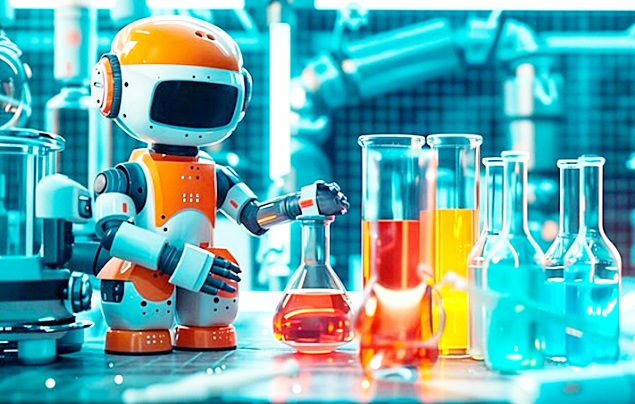1018

Nestlé, Unilever, and Mondelēz Harness Artificial Intelligence to Accelerate Innovation and Efficiency
According to FoodNavigator, major food and beverage corporations such as Nestlé, Unilever, Mondelēz, Kraft Heinz, and Danone are increasingly leveraging artificial intelligence (AI) across production, research & development, and marketing operations. As AI transforms multiple industries, its impact on the food sector is rapidly accelerating.
Nestlé: AI Across the Value Chain
Nestlé has integrated AI throughout its entire value chain. A key highlight is its AI-driven concept generator, which combines consumer insights, market signals, and feasibility data to accelerate product development. The tool has already generated 1,300 product concepts, with over 30 in active development—reducing development time from three months to just three weeks.
Nestlé also uses AI to:
- Optimize recipes (cutting costs, meeting global standards, and aligning with nutritional/environmental targets)
- Develop digital twins for personalized, market-specific digital marketing
- Enhance supply chain efficiency by analyzing over 80% of its supplier contracts using AI
Unilever: In-Silico Product Development
Unilever applies AI extensively in new product development (NPD) through in-silico testing, allowing millions of recipe combinations to be virtually tested in seconds. This technology supports formulation of regionally adapted flavors and product designs, reducing time and cost across the R&D pipeline.
Examples include:
- Hellmann’s plant-based mayonnaise: Developed using AI models that simulate taste, texture, and microbiological stability, enabling the replacement of egg with plant-based emulsifiers without traditional trial-and-error.
- Digital twins of products for marketing purposes using Real-Time 3D and Nvidia Omniverse technologies, resulting in 55% cost savings and 65% time savings in content creation.
AI is also used in Unilever’s Poznan factory to save 10% on utilities and 20% on cleaning time.
Mondelēz: Fast-Tracked Product Innovation
Mondelēz International uses its AI Product Development (AIPD) tool to digitally generate product formulas. This has resulted in over 70 new SKUs, with development cycles up to five times faster than traditional methods—always maintaining human oversight.
Additionally, Mondelēz collaborates with Accenture to optimize marketing via a generative AI platform, which creates personalized images, texts, and videos in real time and drives data-informed decisions across departments.
Kraft Heinz: AI for Quality and Vision
Kraft Heinz employs a proprietary computer vision system to analyze incoming ingredients, capable of identifying a single defective cucumber in an entire truckload.
It also uses:
- AI-powered control towers to monitor the supply chain
- Digital twins for simulation
- TasteGPT (by Tastewise) for tracking food trends and accelerating R&D
Danone: Empowering Teams with AI Skills
Danone is actively training employees in AI tools at its Opole plant in Poland. Teams work with:
- Digital twins for recipe simulation
- Predictive maintenance using smart sensors
- Generative AI agents to optimize efficiency, reduce energy consumption, and cut emissions
Danone also partners with Microsoft to integrate procurement data and improve supply chain performance, while advancing AI-driven gut health research and consumer support tools.
Conclusion: AI is Redefining the Food Industry
From optimizing supply chains and accelerating recipe development to enhancing marketing precision and enabling sustainable production, AI is reshaping how global food companies operate. These transformations mark a new era in intelligent, agile, and personalized food production—where innovation meets efficiency at scale.
(Photo: Freepik)





